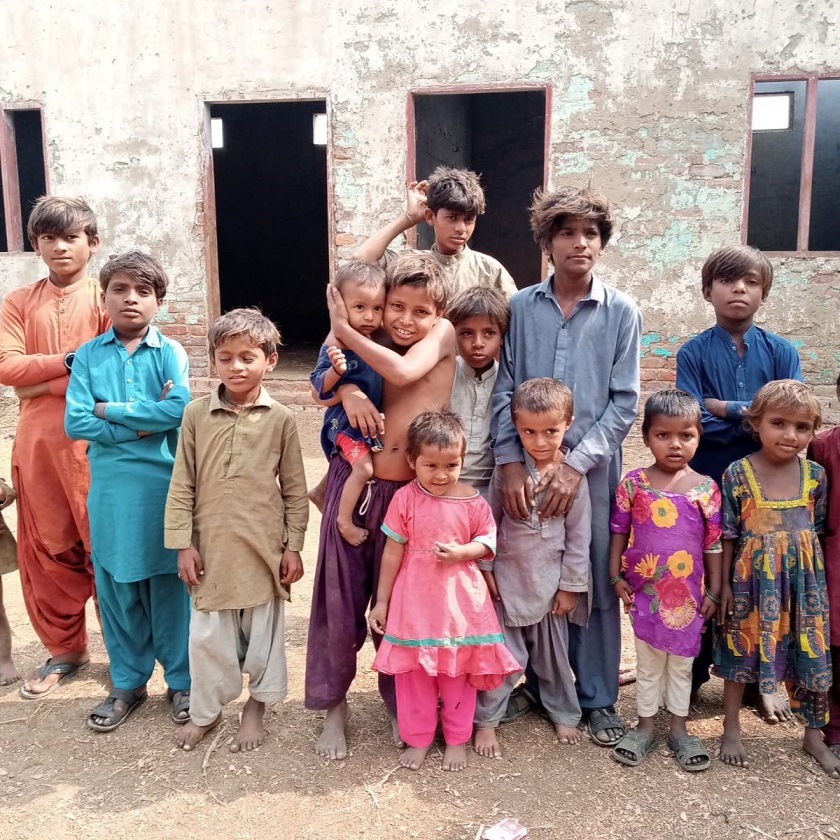15 km from Hyderabad district, Azad Nagar is a small town of 250 houses inhabited by the Kohli and Bhil communities. They were kept as prisoners by landlords for forced labour until the nineties. After a long struggle, they escaped these landlords but had nowhere to live.
Green Rural Development, a local non-governmental organisation (NGO), bought 11 acres of land with the help of Action Aid in 2006 so that farmers freed from the imprisonment of landlords could settle there. This settlement was named Azad Nagar in 2007.
The residents of Azad Nagar built mud houses and started living here, but the problems continued chasing them.
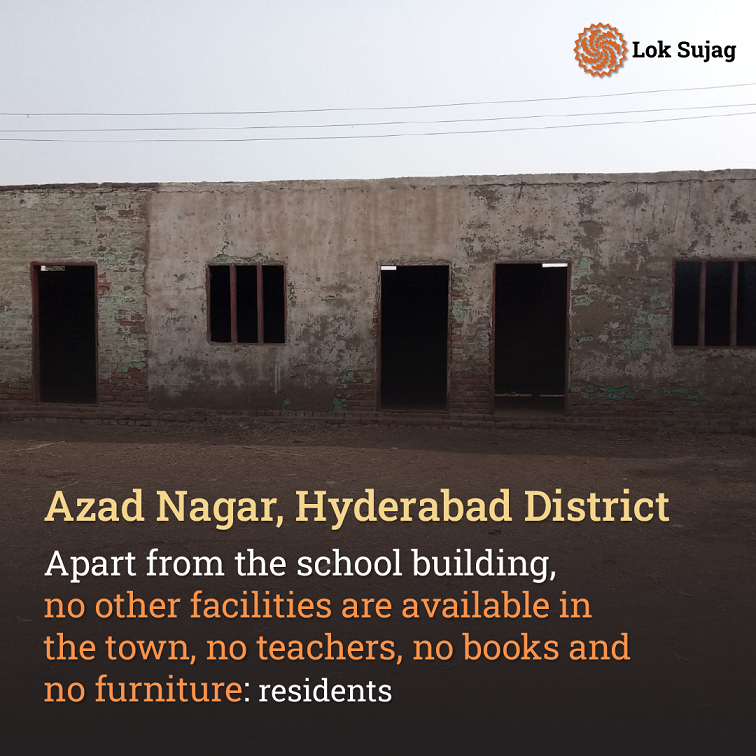
Somar Bhil is also one of those farm labourers who were "slaves" of Raees Qadir Bakhsh Marri in the Sanghar district in the 1990s and is now a social leader. He is 50 and runs a small retail shop in Azad Nagar. He has eight children, four sons and four daughters, who have never been able to attend school since the only local school closed seven years ago.
Somar Bhil says that he wants his children to get an education, too, but no other facilities are available in his village except the school building; there is no teacher, books, or furniture.
Ranumal is also a resident of Azad Nagar; he works in the fields. His four children are also deprived of an education. Ranumal says he wanted his children to attend school, but no school is far away.

His income is so low that he cannot afford to send his children to city schools.
A school was established in this settlement in 2015 but closed within the year. Teachers stopped coming to school when they did not get their wages on time. Now, that dilapidated building of eight rooms is deserted.
Every child in the village is forced to work instead of getting an education.
The Foundation-Assisted Schools (FAS) system was introduced by the Sindh Education Foundation (SEF) in 2015 to provide equal education to all children and improve the quality of education in rural areas like Azad Nagar.
According to the programme, the foundation partners with private and public schools in rural Sindh and provides them with financial support.
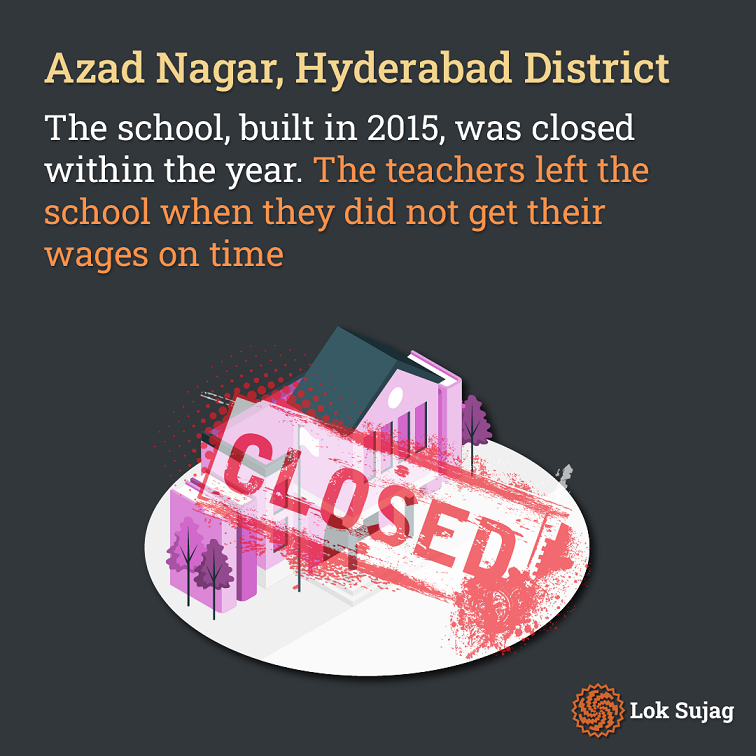
There are certain conditions for setting up a school under the foundation, such as where the school is to be set up in a poverty-stricken, slum, or rural area. There should be no existing school in the area. The number of children should be at least 80, and the school administrator should be at least a graduate. If a school already exists but is inactive, the foundation can make it active by releasing funds.
SEF is a semi-autonomous institution; schools run by the foundation are given per student aid, Rs 1150 for a girl and Rs 850 for a boy per month.
There was no government school in Azad Nagar, so Kashif Bajeer, an employee of an NGO called Spark, built a school in Azad Nagar.
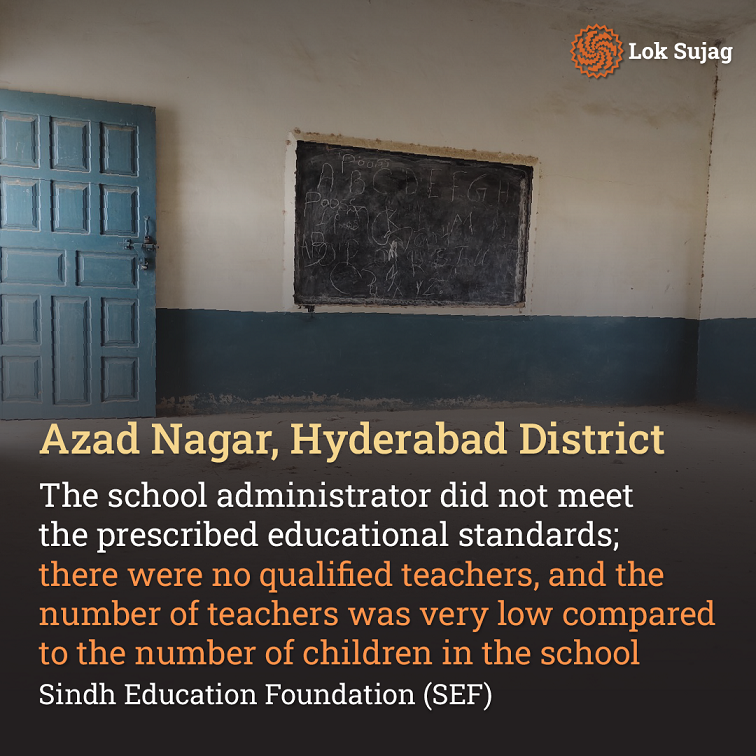
SEF released a 23 lakh rupee fund to Azad Nagar School. Kashif says that he made the school functional with this money, and around 280 children were enrolled there. But when SEF Naheed Shah Durrani took charge as the managing director, he cut the budget of the schools run under the foundation, causing the budget of many schools to be completely wiped out.
SEF research officer Noor Junejo told Lok Sujag about the several reasons for closing the school in Azad Nagar.
"The school administrator did not meet the educational standards set by SEF; there were no qualified teachers, and the number of teachers was less than the number of children in the school".
Also Read
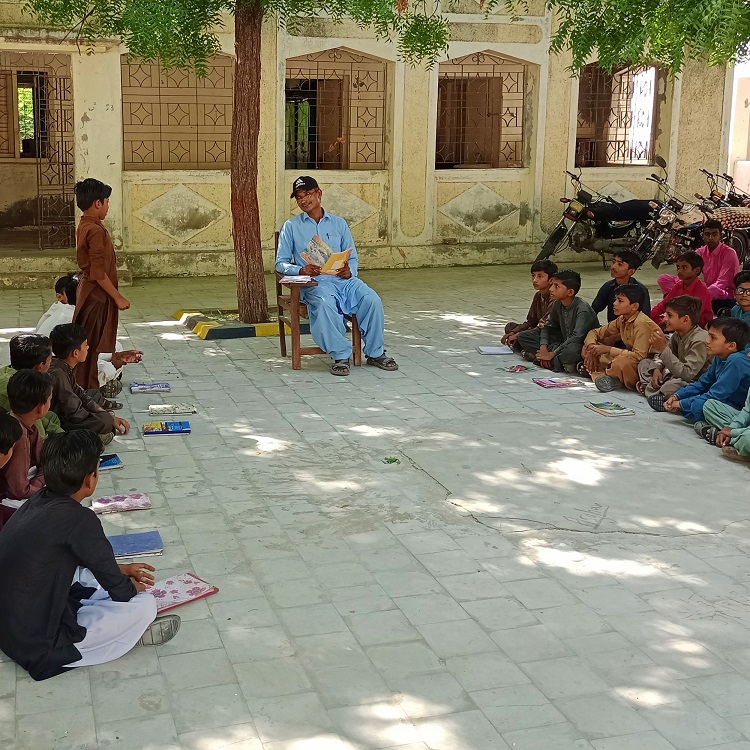
In Nagarparkar, the lack of subject specialists leaves higher secondary schools without regular classes
However, Noor says that if any individual or organisation still wants to activate this school, SEF will assist him.
Kashif says there is no single school in the town; if someone makes the same school functional, then he has no issue relinquishing ownership because he wants the children here to perceive an education.
Syed Hussain Tariq Jamot was elected as a member of the Pakistan People's Party from NA-225 in 2018 but has not played any significant role in the restoration of the school so far. When Sujag asked him, he expressed inaction to the request and demand given by the local people and said that this responsibility belongs to the education department.
Somar has sent written requests to the Member of the National Assembly of Pakistan, the Member of the Provincial Assembly of Pakistan, and the Provincial Education Minister of Bhel Constituency for the restoration of the school, but practically no progress has been made in this regard at any level.
Published on 28 Nov 2023
